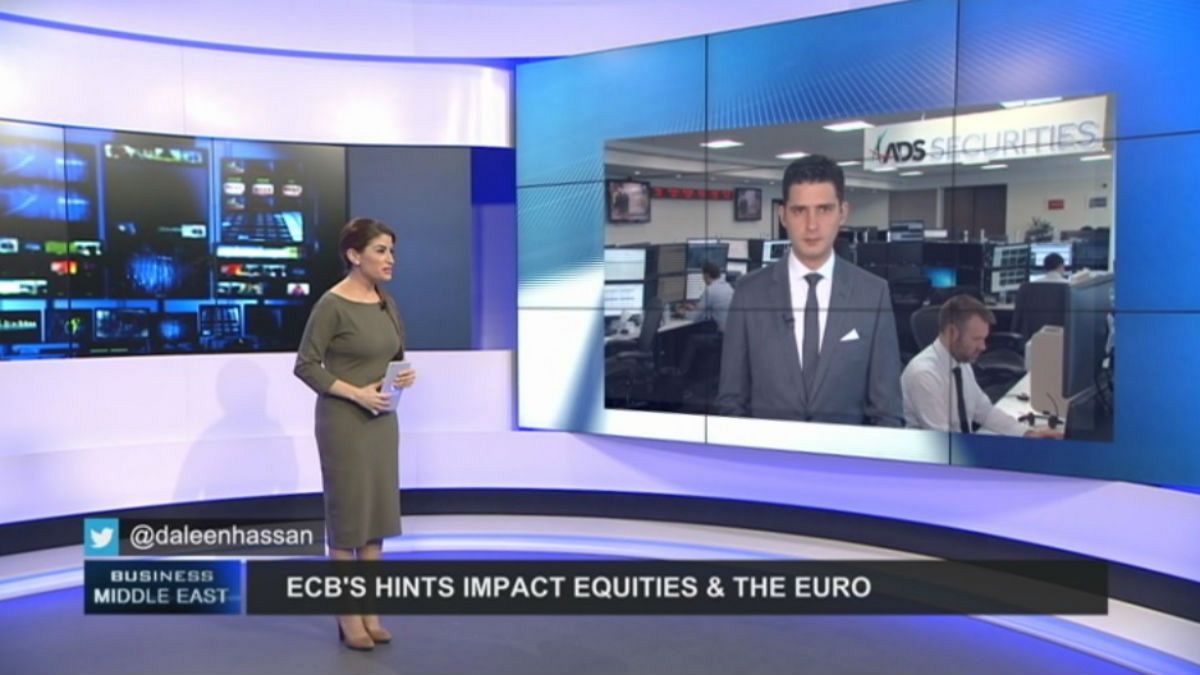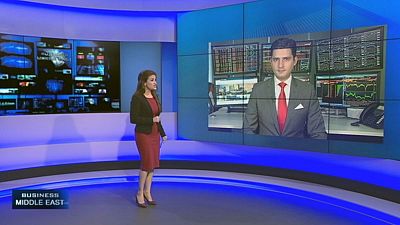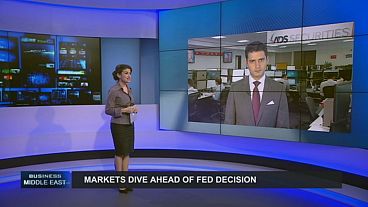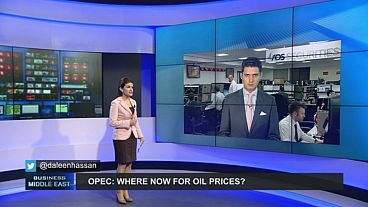Welcome to Business Middle East. This week we look at repercussions of the European Central Bank meeting, and Abu Dhabi starts a new challenge
Welcome to Business Middle East. This week we look at repercussions of the European Central Bank meeting, and Abu Dhabi starts a new challenge.
Although the ECB maintained its policy, unchanged, that’s what gave European equities a positive boost. Mario Draghi’s remarks sent a sign to investors that perhaps there is an increase in the European stimulus programme in December. Well, those signs pushed the euro down; we saw the biggest drop in one day against the dollar in nine months.
ECB’s hints impact equities and the euro
As widely expected, the ECB left the current policy unchanged. During a meeting of the monetary policy committee of the Central European in Malta, European Central Bank President Mario Draghi noted that the current stimulus package might need to be reexamined in December, and discussed the reduction of the interest rate on deposits, said Draghi.
ECB President Mario Draghi said: “Further lowering of the deposit facility rate was indeed discussed, and it’s one of the instruments of monetary policy that I refer to when I said all instruments had been discussed.”
The euro suffered significant losses against dollar after Draghi’s statement and the interest rate cut in China, to deliver the largest daily decline in nine months. The euro sank to 2,83 % till Friday. Global equities rallied on the back of hopes of new cheap money coming into the eurozone. DAX in Germany rallied on Thursday and Friday about 5.69% and CACA 40 gained 5.32% .
For more insights, Daleen Hassan of euronews spoke to Nour Eldeen Al Hammoury, Chief Market Strategist at ADS Securities in Abu Dhabi.
Daleen Hassan: “Mario Draghi’s latest statement gave a positive boost to markets in Europe at the end of last week. To what extent could this recovery continue? And what was the impact of China’s decision to cut interest rates?”
Nour Eldeen Al Hammoury: “As always, the market reacted only to the expectations for further stimulus measures by the European Central Bank, regardless of what these measures are, whether by cutting the deposit rate or by increasing QE monthly purchases. The most important point here is that the ECB did not take any decision last week. Meaning the markets are pricing in future estimates and did not reacted to facts. This is what makes us concerned regarding the latest rally in the global equities, especially that Q3 earnings aren’t good enough and Q4 earnings estimates are also lower than before. As for the People’s Bank of China, the intervention boosted Asian equities, especially the Chinese indices, which added around 1% at the beginning of the week.”
Daleen Hassan, euronews: “After the significant decline we saw for the euro what is your forecast? Is there any impact on the trends of currency trading in the Middle East?”
Nour Eldeen Al Hammoury: “Here in the Middle East we noticed a significant increase in EUR volumes during the ECB decision especially during the ECB press conference. We noticed a heavy selling volume once Mario Draghi hinted for a possible deposit rate cut. However, we would like to point out that what happened in last week’s meeting might be the same as what happened in the September meeting. Back then, the ECB hinted at possible measures in the coming meetings, the Euro fell at the beginning before it recovered again. However and most importantly, we will be waiting for many economic releases from the US this week including the Federal Reserve meeting, which is likely to help the US Dollar, so the Euro may stabilize again.”
A new global market in the heart of Abu Dhabi has opened to investors. This project it is part of the government’s plan to diversify its economic institutions away from the oil sector, and to take advantage of its strategic location, which could fill a gap in the global trading day between Tokyo and London.
Euronews correspondent Rita Del Prete headed to Abu Dhabi to find out more and said: “The new Abu Dhabi Global Market now faces the challenge of defining its own identity, compared to their closest competitor, the Dubai International Finance Centre. However Chairman Ahmed Al Sayegh believes there is room for two financial centres complementing each other rather than competing, just like the Asian Financial poles of Singapore and Hong Kong.”
Share your thoughts with us via euronews social media using the hashtag #businessmiddleeast.



